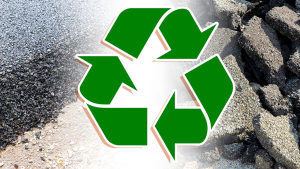COVID-19-related claims on construction projects are increasing, but like the pandemic itself, there is a lot of uncertainty around how to go about it.
“These typical construction contracts don’t address a global pandemic. That’s not written in the contract, or for that matter, its impacts,” said Glenn Ackerley, a partner at WeirFoulds LLP, who moderated the Managing the COVID-19 Related Claims Process panel discussion at the Toronto Construction Association’s virtual Members’ Day event May 5.
“There has been a lot of debate about responsibility for the consequences that we have all been facing the last year. Debate about the contractual terms. Debate about which ones apply. What types of claims can be made? How do you demonstrate those claims? What do you need to show to be successful in making those claims, and then how do you bring the claims themselves, what do you have to do?”
The main issue is that most contracts do not address pandemics and contain old language.
“The source of the claims is multi-fold,” said Andrew Heal, a partner at Heal & Co. LLP. “It’s schedule expansions, PPE costs, a small number of shutdowns. It’s certainly a loss of productivity and it’s important to remember that context is everything. This is happening in real time and what the rules were before are different than the rules today.”
Lawyers stress importance of giving notice
Catherine Willson from Goldman, Sloan, Nash & Haber LLP told the viewers that first and foremost you need to know and understand your contract and remember to give notice.
“Whenever there is an issue, not just COVID, anytime, pick up your contract and read it because you cannot claim in many instances in a contract if you have not given written notice of the claim and there are deadlines,” said Willson. “If you don’t give notice there is a lot of case law that says you’re out of luck.
“My recommendation is whenever you think there is going to be a delay, you think there is going to be an extra cost, if you’re worried about it just send an email with notice saying we believe there is going to be a potential here for increased either cost or time.”
She said to make sure to look at the supplemental conditions in the contract as well.
“They might restrict the notice, they may have other claims that you can claim under or they may reduce your ability to claim, so read the supplementary conditions and see if they modify in any way the notice requirements,” she said. “Know your contract and just send a friggin’ notice. It doesn’t hurt you.”
Records are essential in delay and productivity claims
Gerard Boyle, senior consultant with Revay and Associates Limited, said the monthly Critical Path Method (CPM) schedules that are required by contract are the preferred instrument to analyze delays.
“Understand if there is an effect from COVID it should be quantifiable,” he explained. “Be sure to produce the reliable monthly CPM schedule updates that your contractor requires and do your best to get the owner to accept them. As you probably know, on a great many projects that schedule never gets accepted and people put it in the waste paper basket. That’s risk to you guys as contractors.”
He recommended taking a couple of hours to review it monthly.
“There’s your starting point of a record,” said Boyle. “Your memory is fresh, the facts are available, the complexity of events in one month is manageable and you will have documented your position. Even if the contract doesn’t require resource-loaded schedules understand the baseline labour assumptions for all the key trades and how actual productivity and resource supply is differing. This is just good construction management practice anyway and you need this kind of information to advance a productivity claim.”
Collaboration is key to resolving issues
Recognizing the pandemic is a highly unusual situation, Willson said in Canada, owners, contractors and subtrades seem to be talking and working together to solve problems with discussions and negotiation.
“If that doesn’t work you can go to your contract and choose mediation and get an experienced mediator to help facilitate a negotiation and settlement,” she said. “If that doesn’t work you can go to arbitration. If that doesn’t work you can go to the court. Another idea on your newer contracts is this adjudication process.”
If disputes cannot be resolved through negotiations or mediations then it goes back to what the contract says and whether you are able to convince the court or the arbitrator that you’re entitled under this contract to the costs that you’ve compiled, explained Howard Krupat, a partner at DLA Piper (Canada) LLP.
“That’s where the claims consultant and a lawyer really have to sort that out together and to make sure that as compelling as your case might sound and as overwhelming as these damages may be, you’ve done everything you can to meet the standard that the court is going to require, to show there is an entitlement under a contract, the damages that you are claiming flow from that entitlement and that your counterparty is obliged to pay you for that,” said Krupat. “Those are rudimentary things that the court or the arbitrator is always going to come back to even in a very compelling case.”
Follow the author on Twitter @DCN_Angela.








Recent Comments